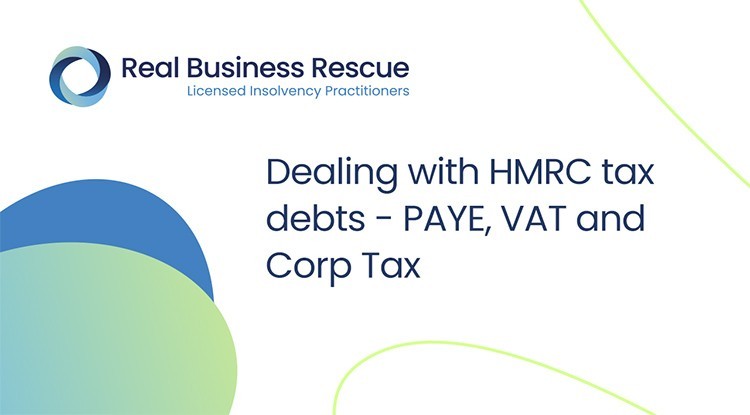
Understand your company's position and learn more about the options available
Require Immediate Support? Free Director Helpline: 0800 644 6080
Free Director Helpline: 0800 644 6080
Updated:
Under Pay As You Earn (PAYE), employers are required by law to set up a recognised payroll scheme that captures information on employee payments, including salary and wages, bonuses and statutory sick pay.
If you’re an employer, it is your responsibility to collect the correct amount of income tax and National Insurance Contributions directly from your employees’ pay, and ensure this money is sent to HMRC within the specified timescale.
If you pay late or send less than the full amount, you’ll receive a warning or financial penalty from HMRC. Responsibility for collecting tax and NIC, as well as liability for its non-payment, rests wholly with you the employer, not your employee.

60 Second Test Find Your Nearest Office
Even if you’re the sole director of a limited company, in many cases you will still need to register as an employer because you are likely to be seen as an employee of your own company. This will allow you to take a regular salary from your business. When you register, HMRC will send out a ‘starter pack’ with a unique reference number to quote when sending payments, and to use if you have any queries regarding payroll.


Get an instant understanding of your:
Plus much more ...
Start The 60 Second Test
The Real Time Information system, or RTI, requires you to submit details to HMRC every time you pay an employee, at the moment this payment is made, whether you pay on a weekly or monthly basis. This is done through what is known as a Full Payment Submission (FPS).
Fail to send your FPS on time and your company will be hit with a fine. The penalties are calculated based on the number of employees your company has as follows:
If you are over 3 months late in sending your FPS you should expect to be hit with an additional fine of 5% of the National Insurance Contribution amount that should have been reported.
If you do not submit the FPS at all, then HMRC will have no option but to estimate the amount they believe you are liable for based on your previous submissions. Not only will you have to pay this amount but you will also be required to pay the additional penalties which will be added to your outstanding balance.
Dealing with HMRC debts?
If you are experiencing pressure from HMRC for unpaid tax liabilities, you are far from alone. In fact HMRC is the most common creditor of businesses in the UK. For expert help and advice in tackling your tax debt, call our team.
The team are available now - 0800 644 6080
Although the first late payment of PAYE in a tax year will not result in a fine, failing to make subsequent payments on time will result in financial penalties, with interest also being applied to the amount outstanding on a daily basis.
Penalties are calculated as a percentage of what is owed, and increase depending on how many times you’ve paid late within a tax year. The current penalty rates are as follows:
Even if you make a partial payment, you won’t escape these additional penalties:
As you can see, once you get into arrears with HMRC it is very easy to enter a downward spiral, even if the original debt was relatively small.
You can read more about what to do if you cannot afford to pay your PAYE here.
HMRC are relentless is pursuing monies owed, and it’s vital that you make contact with them as soon as you realise that you may have to pay late. In doing so you demonstrate responsibility, and show that you’re not deliberately trying to evade payment.
Several options exist if you’re struggling to pay HMRC, one of which is their Time to Pay (TTP) arrangement. This would only be a viable solution if your cash flow problems are temporary, however, and simply need a little more time to meet your tax obligations in full.
If HMRC believe your cash flow problems are more serious, they could take immediate action to recover what is owed by petitioning to wind up your business. This is why seeking the help of an insolvency practitioner is vital for companies experiencing financial distress, as it will help you to understand the severity of your situation and also the options available to you.
Can’t pay CBILS or Bounce Back Loan?
Don't worry - there are thousands of other company directors in the same position. If you are struggling to keep up with your Covid loan repayments, speak to a member of the Real Business Rescue team to discuss your options. It's Free & Confidential.
The team are available now - 0800 644 6080
Time to Pay was originally introduced by the government to help businesses struggling to keep up with their taxes during the recession. The scheme generally offers a business an extended period of between six and 12 months to pay off its HMRC arrears.
While TTP arrangements can be a lifeline to companies who have fallen behind with their HMRC obligations, not all businesses will be able to take advantage of the scheme. You must be able to demonstrate that you will be able to clear the entire backlog of your HMRC arrears, as well as keeping up with your current and future tax obligations, within a period of 12 months.
This means you need to be in a position to offer a monthly amount large enough to clear the debt, while ensuring your company will still have enough money to pay its other liabilities and continue to trade. Should HMRC have any doubt over this fact, then they are within their right to refuse your request for additional time to pay.
Before submitting a TTP request to HMRC, your company’s finances should be reviewed and assessed by an insolvency professional to make sure you don’t offer an unsustainable monthly amount which would negatively impact your business in the long-term. Your chances of successful negotiation are also increased if you have a track record of paying HMRC in full and on time; continuous instances of paying late, not at all, or otherwise not adhering to your responsibilities when it comes to paying tax, will hamper your chances of entering into a payment plan significantly.
Your TTP proposal is made directly to HMRC and should be accompanied by:
The input of professional advisors is very influential, and we can put forward a strong case on your behalf. If the proposal is accepted, you avoid having to enter formal insolvency, and stop any existing or planned legal proceedings against you.
Invoice factoring
If your PAYE arrears have occurred due to unreliable cash flow caused by customers repeatedly paying you late, it may be worthwhile exploring whether a form of invoice financing could assist. This type of finance allows you immediate access to an agreed percentage of your outstanding invoices; once you have an invoice finance facility in place, money can be accessed as soon as an invoice is raised. This provides a level of certainty as to when you will have money coming into your business rather than being at the mercy of your customers and relying on them paying you on time.
Asset finance
Some businesses are cash-poor but asset-rich, in which case leveraging the value of those assets via asset financing could be an option. This allows you to use the valuables your company already owns, such as machinery, vehicles, and investments, to obtain a loan. As company assets are used as security for the borrowing, you will be at risk of losing them should you fail to keep up with your agreed monthly repayments; the loss of a key asset could cause you severe issues and may even prevent you being able to continue to trade. It is vital that you think extremely carefully and seek expert advice before signing up to such an agreement.
Formal insolvency options
If your company has other creditors in addition to HMRC demanding payment and you feel there is no way out, you may need to consider a formal insolvency procedure. The nature this could take will depend on how viable you believe your company to be in the future.
If you are determined to rescue your company and believe there is a realistic chance of achieving success with it going forwards, you may be able to enter into a process called a Company Voluntary Arrangement (CVA). This is a legally binding agreement between a company and its creditors which allows a company to renegotiate the terms of its current borrowing and other financial liabilities. This will typically take the form of reduced monthly repayments while some debt is often wiped out completely as part of the process. Where a company leases premises, a CVA generally involves negotiation over the current terms of the lease (or leases) and may allow for a lowered monthly rental amount or even present an opportunity for the business to vacate the property early.
In instances where a company’s financial problems have taken it beyond rescue, voluntarily placing the business into a formal liquidation process known as a Creditors’ Voluntary Liquidation (CVL) may be the only viable option remaining.
Any formal insolvency process, regardless of whether the end result is to rescue or to shut down the company, can only be entered into under the guidance of a licensed insolvency practitioner. An insolvency practitioner will be able to expertly assess your situation and present you with the possible ways forward for your company.
If your company is struggling with unmanageable debts, squeezed cash flow, or an uncertain future, you are far from alone. We speak to company directors just like you every single day, and we are here to give you the help and advice you need.
Call our team today on 0800 644 6080
For the past 30 years, Real Business Rescue has been helping company directors navigate through the toughest of financial problems. With over 70 licensed insolvency practitioners operating across nationwide offices, we are able to provide expert help and advice to directors all across the country. Take the first step by calling our team and arranging a free no-obligation consultation today.
Still unsure whether liquidation is right for your company? Don't worry, the experts at Real Business Rescue are here to help. Our licensed insolvency practitioners will take the time to understand the problems your company is facing before recommending the best course of action going forward based on your own unique circumstances.

Complete the below to get in touch
For Ltd Company Directors
Get An Instant Understanding Of Your:
Plus much more ...
We provide free confidential advice with absolutely no obligation.
Our expert and non-judgemental team are ready to assist directors and stakeholders today.

Understand your company's position and learn more about the options available

Find your nearest office - we have more than 100 across the UK. Remote Video Meetings are also available.

Free, confidential, and trusted advice for company directors across the UK.